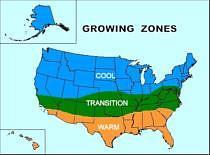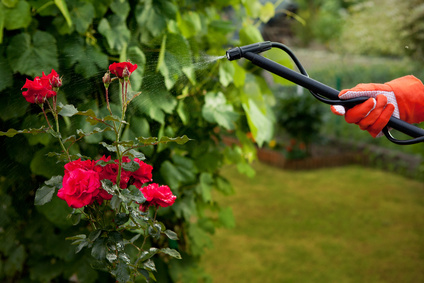Compost tea has been generating a lot of buzz and controversy in the world of lawn care. It is used to inoculate soil and foliage with beneficial microbes and is being touted as a cure-all for poor soils and a natural protection against lawn diseases. Landscape firms, grounds managers and homeowners are applying it as a key ingredient in their organic lawn care programs.

What they are saying:
- “Better than plain old compost”
- “Increases plant growth”
- “Keeps lawns and garden plants free of disease”
- “Speeds the breakdown of toxins”
- “Eliminates toxic chemical use”
- “Shown to increase the nutritional quality and improve the flavor of vegetables”
There is no denying the benefits of compost or the importance of healthy soils teeming with beneficial microbes; however, is compost tea worthy of all this praise? Or…is it just another gardening remedy promoted as having amazing properties but doesn’t really do much of anything?
What is Compost Tea?
CT is a liquid extract of compost that contains beneficial microorganisms and nutrients. I have heard it defined as a liquid suspension of biological life.
In a nutshell, it is made or ‘brewed’ by placing compost in a permeable bag and then soaking it in water for 24 to 48 hours. There are recipes that include additions of molasses, fish hydrolysate and other sources of nutrients. Air is then pumped into the brewer to promote the growth of beneficial, aerobic microorganisms. The tea is then applied to the soil or as a foliar spray.

Harvard Uses It!
Below is an interesting video (2009) demonstrating how Harvard Campus Services has integrated compost tea into its organic landscape management plan. Wayne Carbone, the head groundskeeper at Harvard, states that CT has helped them “eliminate all synthetic fertilizers and all harmful chemicals”.
Better than compost tea!
Have you heard about the Sunday Smart Lawn Plan? It’s simple, do-it-yourself natural lawn care that’s customized to your soil, climate, and lawn. Delivered to you right when you need it.
Sunday’s plant and soil nutrient products are made from food waste, seaweed, and molasses. The natural additives stimulate plant growth and activate soil life.
This is Super Environmentally Friendly lawn care!
Bio..Logical Lawn Care or Snake Oil?
The noble pursuit to eliminate the use of synthetic chemicals in lawns and gardens has whipped up an onslaught of elixirs and home remedies that do not work. Whenever I encounter a product or home remedy that seems too good to be true, I search for what the experts are recommending.
In this case, WSU Extension Horticulturist, Dr. Linda Chalker-Scott states that there is no benefit to applying compost tea.
As a researcher and professor, she bases her recommendations on what the research supports and points out that the science behind compost tea is lacking.
Compost Guru Frank Gouin agrees:
“It’s very hard to find research that supports compost tea” as a disease suppressant. And even for its nutrient-providing benefits, Gouin thinks that regular compost is better.”
~ Homestead Gardens Blog January 2010
I’m 100% behind reducing chemical use in lawns and landscapes and welcome new ideas and innovations. However, until there is scientific proof that compost tea actually does what supporters claim, I will stick to simply topdressing my lawns with compost and adding fertilizer to supply nutrients.
The below links to recommended books on Amazon are affiliate links. This means if you click on the link and purchase the item, I will receive an affiliate commission at no extra cost to you. All opinions remain my own. PLEASE READ MY DISCLOSURE FOR MORE INFORMATION.
Books by Jeff Gillman:
Decoding Gardening Advice: The Science Behind the 100 Most Common Recommendations
The Truth About Garden Remedies: What Works, What Doesn’t, and Why
By Jeff Lowenfels about soil microbiology:
Teaming with Microbes: The Organic Gardener’s Guide to the Soil Food Web, Revised Edition
You might like these natural lawn care tips:
Organic Lawn Fertilizer | Benefits of Natural Fertilizers
Organic Lawn Fertilizer: Benefits of natural fertilizers. How natural products improve the soil and health of landscapes. Helpful DIY lawn care tips.
Chemical Fertilizers vs. Organic lawn Fertilizer
Are natural organic fertilizers safer than chemical fertilizers? Are they better or safer for lawns, the environment, and your family? Do synthetic sources of nutrients harm the soil?
Vinegar Weed Killer vs Roundup
Why your recipe for homemade vinegar weed killer won’t work. Glyphosate is a more effective and safe non-selective herbicide. Helpful DIY lawn care tips and advice. Organic weed control and more.
